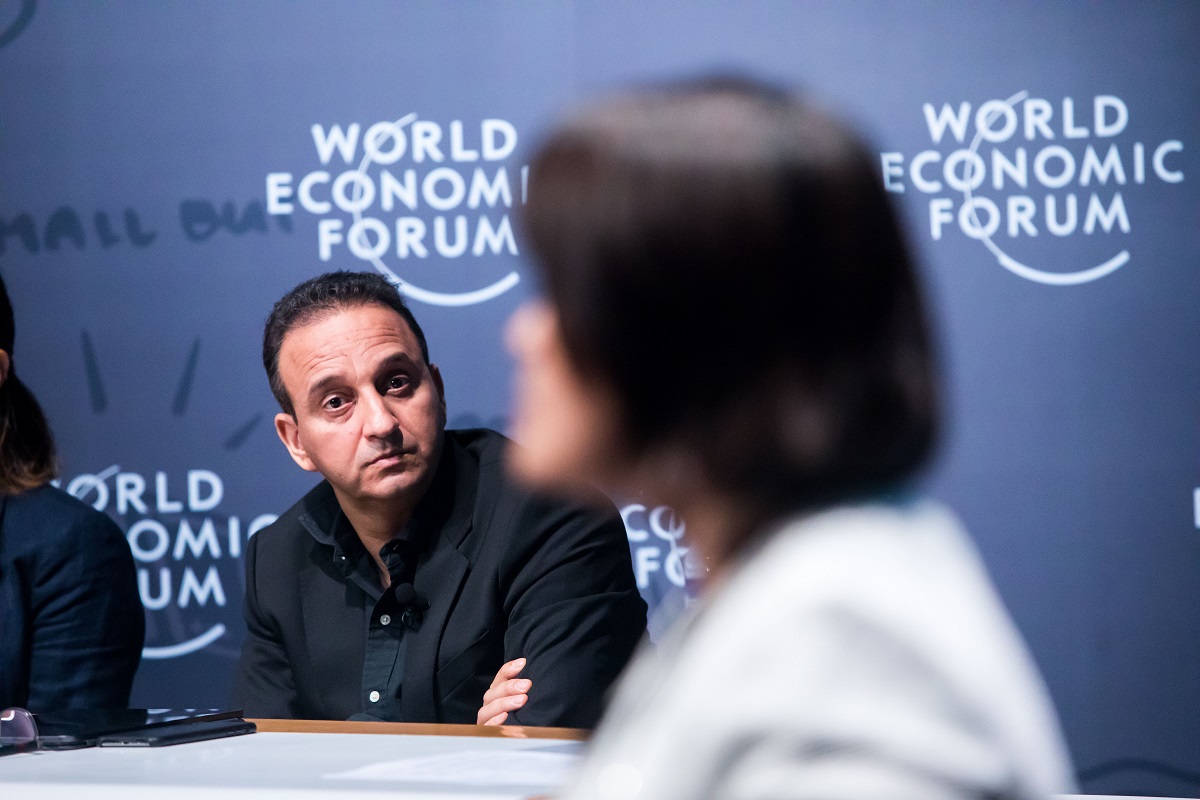KAUST presents sustainability science to the world

KAUST President Tony Chan speaks during a session as part of the World Economic Forum’s Meeting of the New Champions in Dalian, China. Image courtesy of World Economic Forum.
By KAUST News
KAUST recently led a session of the World Economic Forum's (WEF) Meeting of the New Champions in Dalian, China.
KAUST President Tony Chan was accompanied by University faculty members Peiying Hong, Mohamed Eddaoudi and Derya Baran. This year's edition of the annual event was held under the banner "Leadership 4.0: Succeeding in a New Era of Globalization."
Chan inaugurated the IdeasLab session—a first for the Kingdom. The session, titled "Fast-Tracking Green Technology," featured the innovative work of KAUST researchers, including water reuse technologies, carbon sequestration and transparent solar panels embedded in windows.
Chan described KAUST as a new, innovative hub for global research and education, before introducing the session's three academic presenters.
Peiying Hong, KAUST associate professor of environmental science and engineering, focused on her work on water reuse and used a famous quote of environmental scientist Dr. Jonathan Foley: "When we think about threats to the environment, we tend to picture cars and smokestacks, not dinner. But the truth is, our need for food poses one of the biggest dangers to the planet."

KAUST Associate Professor Peiying Hong (pictured) was one of three University faculty members who accompanied KAUST President Tony Chan on his recent trip to the World Economic Forum's Meeting of the New Champions. Image courtesy of World Economic Forum.
Mohamed Eddaoudi, KAUST distinguished professor of chemical science, highlighted his research on carbon capture technologies.
Eddaoudi hopes to help bridge the gap between humanity's energy needs and the rising levels of greenhouse gases in the atmosphere.

KAUST Distinguished Professor Mohamed Eddaoudi participates in the IdeasLab session, a part of the recent World Economic Forum's Meeting of the New Champions. Image courtesy of World Economic Forum.
Derya Baran, KAUST assistant professor of material science and engineering, gave a presentation on her research on transparent solar cells. Baran has launched KAUST spinoff iyris, which aims to turn windows into solar power plants the world over.

KAUST Assistant Professor Derya Baran spoke about her research on transparent solar cells during the IdeasLab session, a part of the World Economic Forum's Meeting of the New Champions. Image courtesy of World Economic Forum
Thus, coming from entirely different fields, each of these technologists accomplishes a separation that is environmentally valuable in its own right, and as a by-product, it partly pays for itself.

